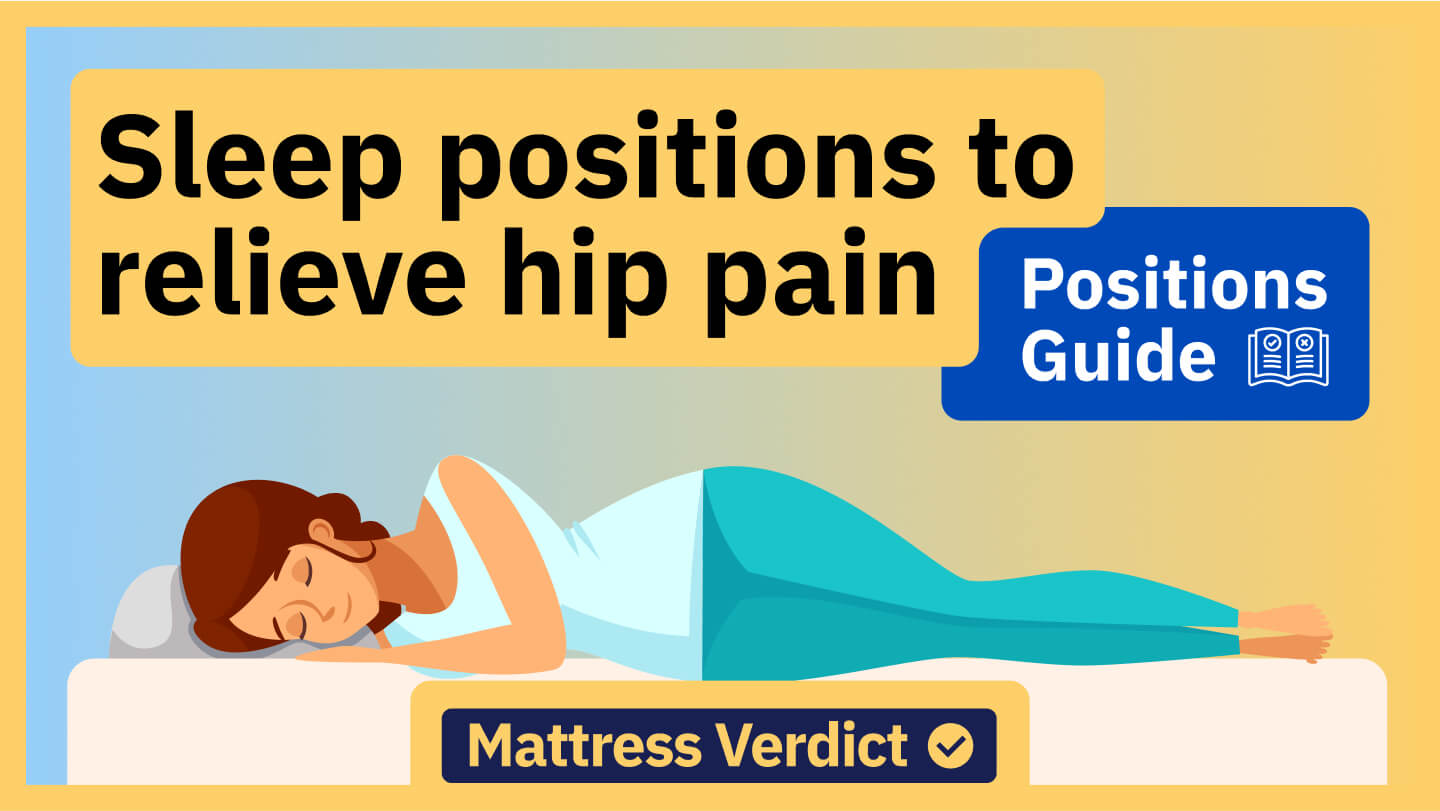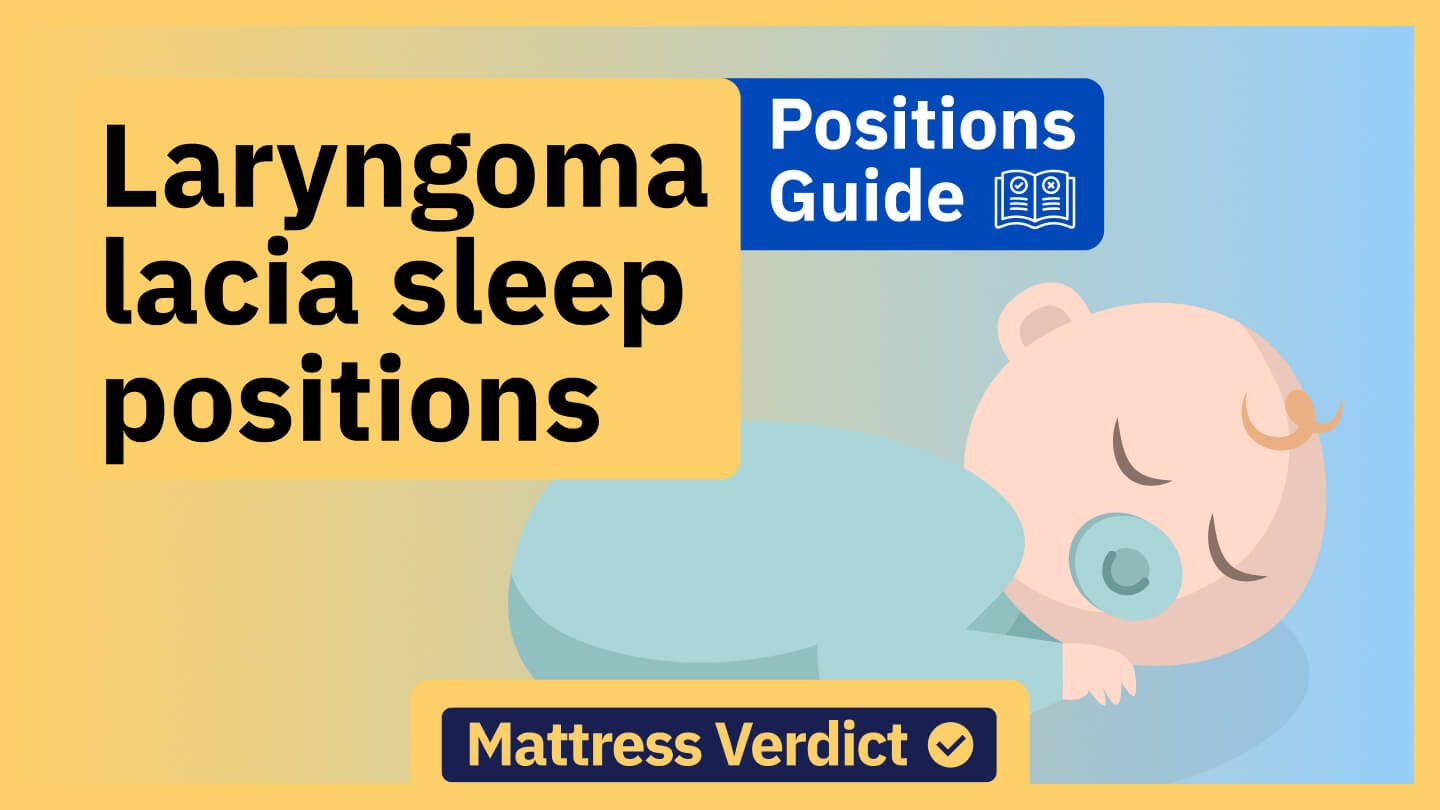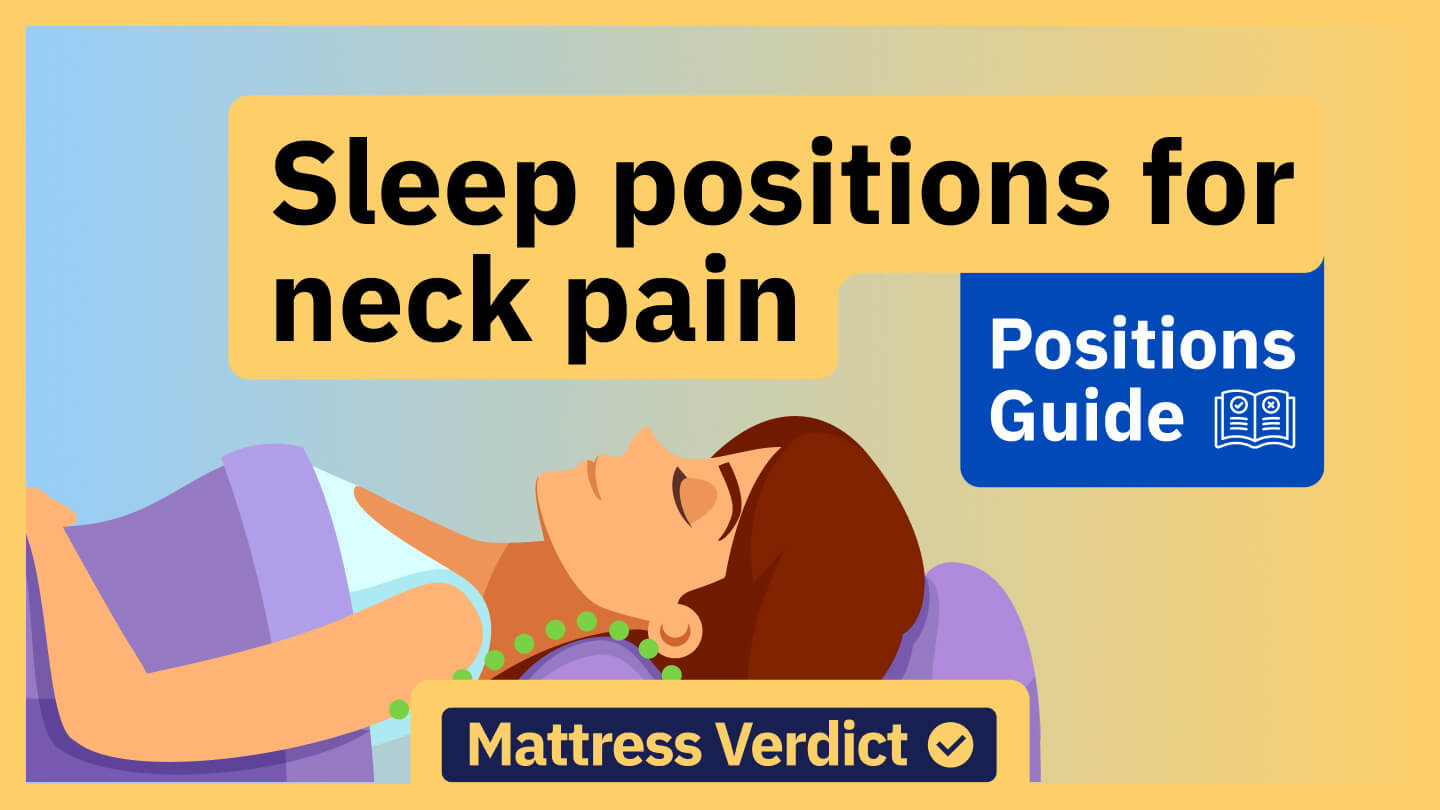

If you often wake up unable to feel your arms after a lengthy nap, you’re probably one of the millions whose arm goes numb when sleeping. Although most people easily dismiss this discomfort as a natural occurrence, waking up with numb arms could be a sign of health issues like nerve compression, nerve damage, and even poor blood circulation. If you often wonder, "Why are my arms numb when I wake up?" Mattress Verdict offers valuable insight into why your arms fall asleep when sleeping and practical tips for overcoming this discomfort.
Key Takeaways
- Numbness in the arms while sleeping is a symptom of health challenges.
- If left untreated, numbness in hands while sleeping could lead to more severe health issues.
- There are helpful tips for dealing with arm numbness while sleeping.
- See a health professional if your condition doesn’t improve.
Why Do My Arms and Hands Go Numb When I Sleep?
Several factors could be responsible for your arm going numb while sleeping, and here are the most common factors.
Sleeping Posture
Poor sleeping posture is the leading cause of your arms falling asleep while sleeping. Laying your body's weight on top of your arms will increase the pressure on the muscles and blood vessels in your arms. This occurrence will significantly limit the blood flow within those regions and lower their temperatures. Also, specific sleeping postures, such as suspending your arms while sleeping, will restrict blood circulation in your hands.
Carpal Tunnel Syndrome
During lengthy periods of inactivity, the median nerve in your hands becomes compressed due to inflammation. This occurrence is known as the carpal tunnel syndrome. Carpal tunnel syndrome also results in pain, weakness, burning sensation, itching, and tingling in the affected hand, wrists, and fingers. This syndrome is more common in people who perform repetitive tasks such as typing with their hands for lengthy hours, and their arms may go numb when sleeping.
Peripheral Neuropathy
The peripheral nervous system refers to the collection of all the nerves in the human body outside of our brain and spine. It relays impulses from other parts of our bodies to the central nervous system. Peripheral neuropathy is any health challenge caused by injury to the peripheral nervous system. Depending on the type of peripheral neuropathy and the extent of damage, victims may experience hypersensitivity, lack of coordination, and waking up with numb hands.
Pinched Nerves
Pinched nerves are often caused by trauma and inflammation. Excessive pressure on the nerves in your arms will hinder the relay of the impulses and cause them to send faulty signals. This occurrence could make your arms fall asleep while sleeping and result in the loss of feeling, weakness, and limited hand coordination when you wake.
Alcohol Abuse
Excessive alcohol consumption impairs the nervous system efficiency. Also, prolonged alcohol abuse results in nerve tissue damage and results in your hands falling asleep at night. Common symptoms of such damage include impaired motion coordination, loss of feeling, and weakness in the arms.
Extreme Temperature
Sleeping in unfavorable weather conditions like the extreme cold will numb your arms when you wake. The cardiovascular system responsible for blood circulation prioritizes our organs over our limbs. When exposed to extreme cold, more blood is taken from our arms and legs and channeled to our kidneys, lungs, brain, and other organs. Hence, our arms' temperature is significantly lowered, and we feel cold and numb when we wake.
Other Medical Disorders That Can Lead to Numbness in Arms and Hands While Sleeping
Besides the major causes of arm numbness while sleeping, other medical disorders could be responsible for your discomfort.
Diabetes
This chronic disease arises when the body can’t produce enough of the insulin enzyme responsible for regulating the sugar levels in our bloodstream. Prolonged diabetes results in high blood sugar levels and poses a severe risk to the peripheral nervous system, with this report by the American Diabetes Association showing that about 50% of diabetic patients suffer various forms of nerve damage.
Cervical Disc Diseases
The cervical discs are the soft plates between the spinal joints in your neck. These discs enable you to move your neck with ease. The cervical discs could swell, rupture, or even slip out of position. They could also begin to wear down as you get older. Cervical disc disease puts extra pressure on the nerve roots and impairs the transfer of nervous impulses. It could result in numbness in your arms or one side of your body.
Neck and Brain Tumors
The brain and the spine form our central nervous system, which helps regulate our normal bodily functions by sending and receiving impulses from our peripheral nervous system. Tumors or inflammations around the brain or neck exert pressure on critical neural paths around the region and hinder the transmission of impulses between both nervous systems. This occurrence could also impair the sensory perception of the central nervous system, cause tingling sensations in the limbs, and lead to arms going numb while sleeping.
Neurosyphilis
When the syphilis bacteria infects the brain and spinal cord, it destroys several central nervous system components. Hence, patients exhibit symptoms such as visual impairment and reduced mental abilities. Neurosyphilis also causes peripheral neuropathy and loss of feeling in the legs and arms.
Rheumatoid Arthritis
Rheumatoid arthritis puts pressure on the nerves around the affected joints and causes numbness or tingling. Consistent feelings of numbness in the arms could be a pointer to advanced stages of rheumatoid arthritis in patients.
Side Effects of Medications
Several medications cause arm numbness as a side effect. Medicines for cancer, blood pressure, migraines, and even skin care could induce feelings of dizziness and numbness in the arms and legs. Also, the allergens contained in any medication could result in complications that make your arm keep falling asleep whenever you nap.
Tips on Treating and Preventing Your Arms and Hands From Falling Asleep at Night
You can take practical steps to overcome the discomfort and ensure your arms are in excellent shape when you wake. Here's how to prevent your hands from going numb while sleeping.
Massage the Affected Areas
Massages are an effective fix to treat numb arms while sleeping. If your arms feel numb when you wake, you don't need to feel alarmed. The reason for the numbness could be poor blood circulation. So, take some time to awaken your numb arms by massaging them. This action will relax the cardiovascular channels and get the blood flowing again. Alternatively, you could flex the arms, shake them gently, or try to roll them in circles. Perform these steps gently and stop if you feel any pain.
Exercise Regularly
It's impossible to overemphasize the benefits of healthy exercise. Regular exercise improves the blood flow and slows down the degeneration of body tissue. If your hands fall asleep at night, you could adopt a regular hand and wrist exercise routine to strengthen the joints around your wrists and the carpal tunnel.
Apply Creams
Many health professionals often recommend topical creams to patients with peripheral or diabetic neuropathy whose hands go numb while sleeping. The active ingredients in these creams are usually lidocaine, capsaicin, and menthol. These creams help reduce feelings of numbness, pain, or tingling in affected regions.
Stick to a Healthy Diet
Committing to a healthy diet is critical to overcoming diabetic neuropathy. Do away with red meat and cut down on alcohol intake. Consider including more vegetables and fruits in your diet to provide your body with the proper nourishment. For instance, sweet potatoes contain natural anti-inflammatory compounds, while spinach and broccoli contain alpha-lipoic acids that improve nerve function. Watermelon, red grapes, and oranges are also great for slowing down nerve damage.
Use Wrist Guards
Wearing wrist guards helps patients suffering from carpal tunnel syndrome to protect their wrists from excessive stress and pressure. Wrist guards come in handy when performing repetitive tasks for long periods. You could also wear them to sleep to ease any pressure on your wrists that might develop due to poor sleeping posture.
Adopt a Comfortable Sleeping Position
Your poor sleeping posture might make your arms numb when sleeping. The best sleeping position to prevent arm numbness at night is lying on your side or back. Avoid placing your hands under your pillow or between your knees. If your arms go numb while sleeping on your side, then you should consider adopting a fetal position.
Sleeping on small, uneven surfaces will cause arm numbness and even severe neck pain. Get a comfy mattress that matches your size and shape. You can take the Mattress Verdict quiz to find the perfect mattress for you.
The best sleep positions for neck pain are on your back or side. While lying on your back, use a round pillow to cradle the curve of your neck and another flat pillow for your head. If you’re searching for effective sleep positions for sciatica, it’s better to sleep on your side with a pillow between your knees and another between your waist and the mattress. Also, consider lying on your back and sleeping with your legs elevated to ease the pressure off your back and spine.
When to Consult Your Healthcare Provider
Feeling numb in your arms every time you wake could be a symptom of severe health challenges. If the problem persists, you need to see a health professional. They may need to run a few tests to detect any underlying health issues and possibly prescribe drugs to treat this condition.
Frequently Asked Questions
Can stress cause arm numbness at night?
Yes. Stress causes many body changes, including muscular tension and irregular blood circulation. These factors could lead to your arms falling asleep at night.
Is paresthesia serious?
Although it’s pretty painless, it could be a symptom of far more severe health issues like multiple sclerosis and encephalitis.
What does MS tingling feel like?
MS tingling is usually one of the first symptoms of the condition. It creates sensations in different individuals varying from painful, electrical sensations to numbness in the face, arms, or legs.
Can not drinking enough water cause numbness?
Dehydration could be one of the reasons why your arm falls asleep at night. Low water levels cause an electrolyte imbalance in your body system. This imbalance often results in sensations of dizziness, numbness, or tingling in various parts of your body. It’s important to stay adequately hydrated.
Why do my arms fall asleep at night?
If you notice that both arms fall asleep at night, your sleeping position is the likely reason. Sleeping in a bad posture that compresses the nerves in your hands will limit the transfer of nervous impulses and make your arms feel numb.
What happens if you ignore neuropathy?
Leaving neuropathy untreated could result in paralysis. Progressive nerve deterioration eventually weakens the connecting muscles. Patients begin to find it increasingly difficult to move the affected body parts, and muscular atrophy finally sets in.




